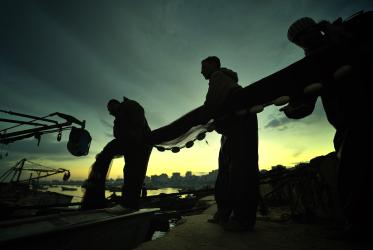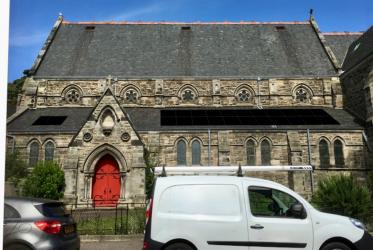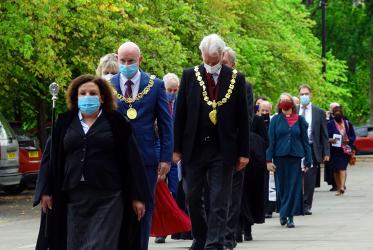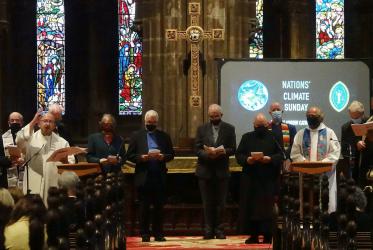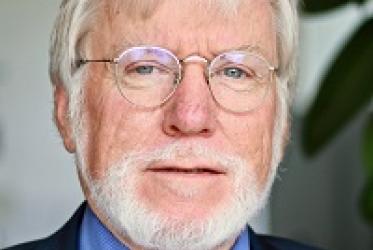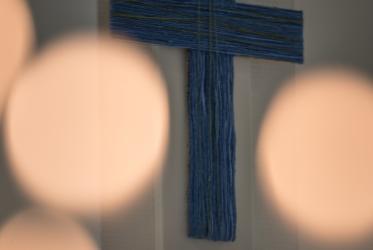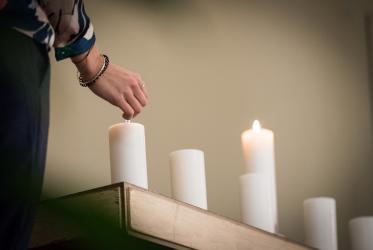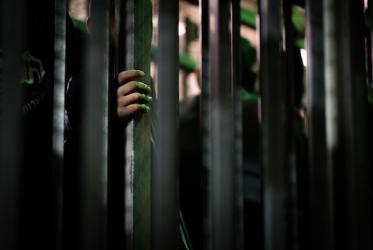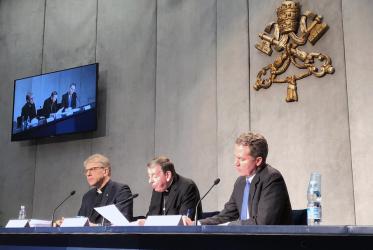Displaying 1 - 20 of 27
Scottish and UK religious leaders call for urgent climate action
20 September 2021
Climate Sunday: an opportunity for churches to act for creation
06 September 2021
WCC urges: “give highest priority to protect life”
21 March 2020
Greenland’s grand Gospel preacher
07 February 2020
American and Swedish church leaders sign joint climate justice pledge
26 September 2019
A humble servant in God’s herd
10 July 2019
“There are no spare parts for whales”
13 June 2019
